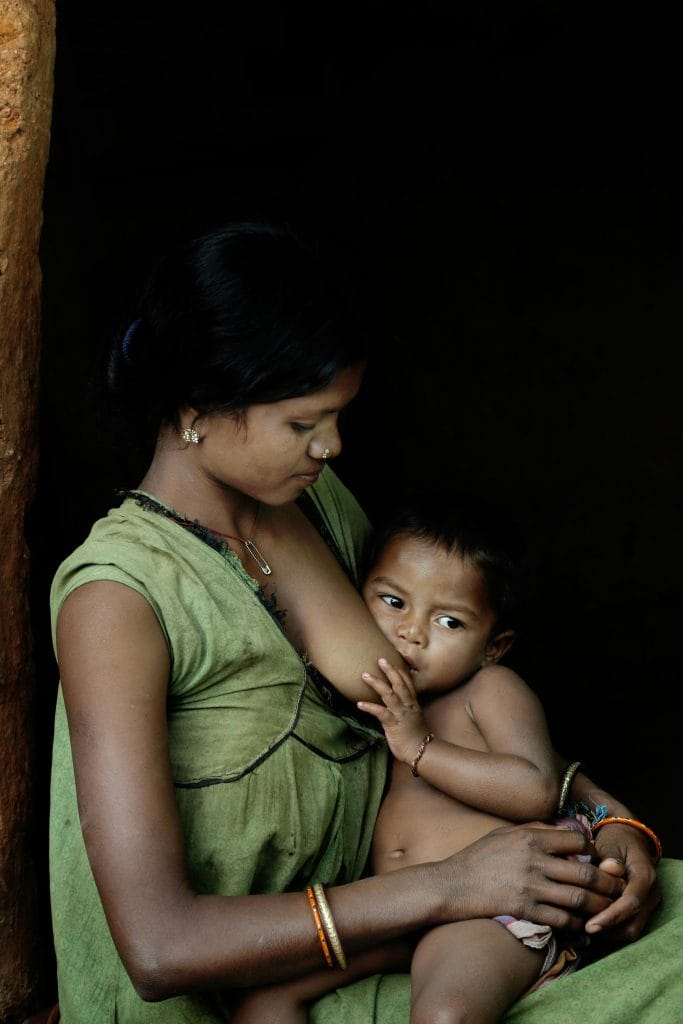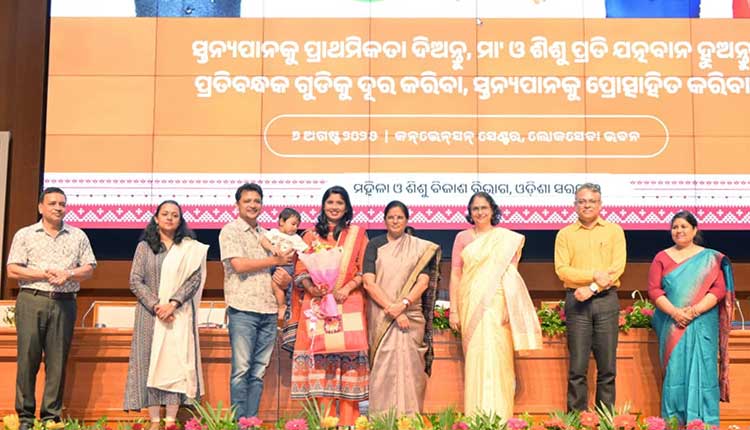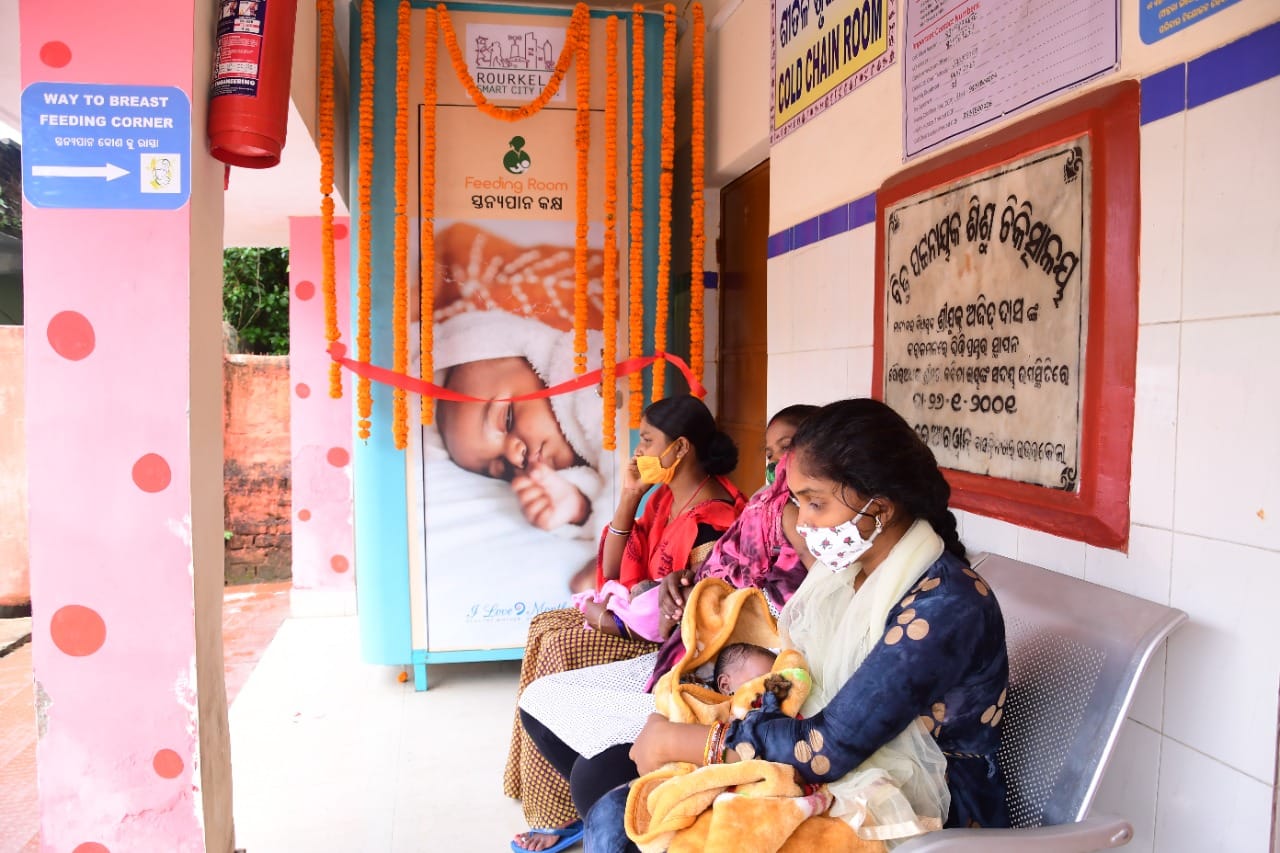One year after Odisha’s announcement of breastfeeding cabins, the promise remains largely unfulfilled. From railway stations to markets, mothers still struggle to find safe, private spaces to feed their babies. For many, the wait has turned into frustration, as dignity and basic maternal needs remain overlooked in public planning. In August 2024, the Odisha government made headlines across the country with a progressive promise: to establish breastfeeding cabins in government offices and public spaces across the state. The move, widely lauded by health experts and women’s rights activists, was positioned as part of a larger push for gender-sensitive infrastructure, arriving shortly after the state introduced paid menstrual leave for women employees.

The announcement came through a formal directive issued by Reena Mohapatra, Additional Secretary in the Department of Women and Child Development (WCD). As per the plan, senior officials in every department were instructed to ensure the presence of these nursing cabins in government offices. District collectors were made responsible for setting up similar spaces in public places and even encouraging private institutions to follow suit.
A year of waiting: little to show
At the time, it felt like a long-overdue change was on its way. Twelve months on, the change is only just beginning to show in official tallies. During World Breastfeeding Week in August 2025, the state inaugurated what officials described as the first public breastfeeding room at the Odisha State Commission for Women (OSCW) office in Bhubaneswar—a pilot, government sources said, intended to be replicated in other public spaces. At the same event, the Deputy Chief Minister, Pravati Parida, reiterated plans to roll out similar centres at railway stations, bus stands, malls, and markets.
Since last year, mothers across Odisha have been waiting for things to change, but nothing has happened. The only visible step so far is the recent inauguration of a breastfeeding cabin at the Odisha State Commission for Women in Bhubaneswar.
Outside this announcement and the single OSCW facility, concrete evidence of widespread implementation is scant. A court in Berhampur opened a dedicated nursing room for women litigants in late July 2025, an isolated example of a public institution responding to the need. Beyond these two instances—one state office and one court—there are no major media reports of functioning breastfeeding rooms across the state’s railway stations, bus terminals, schools, shopping malls, or district government offices as of early August. That means, by a conservative count from public records and press reports, one officially launched public breastfeeding centre and one court nursing room are the only documented public facilities directly attributable to the 2024 directive so far.
Since last year, mothers across Odisha have been waiting for things to change, but nothing has happened. The only visible step so far is the recent inauguration of a breastfeeding cabin at the Odisha State Commission for Women in Bhubaneswar. While it may be a start, many mothers feel it is misplaced. Such facilities should have been established first at public places like railway stations and bus terminals—spaces where thousands of mothers travel daily with their babies, often for long hours, and desperately need privacy and safety to feed them.
Even at Bhubaneswar railway station, which handles over 100,000 passengers a day, there is still no official nursing space despite its status as the capital’s main station. For young mothers, the absence is not just an inconvenience; it is an ordeal.

‘It is humiliating and uncomfortable,’ says Sunita Nayak, who often travels with her eight-month-old daughter. ‘These cabins should have been set up first in places like railway stations where thousands of mothers travel every day. I bring a shawl to cover, but in such crowds, there’s no real privacy. Some men stare like they would eat you with their eyes—it makes you feel unsafe, but you have no choice when your baby is hungry.’
The situation is no better in other public spaces. Even in Bhubaneswar’s largest shopping mall, where space is hardly a constraint, no breastfeeding cabin exists. ‘
The situation is no better in other public spaces. Even in Bhubaneswar’s largest shopping mall, where space is hardly a constraint, no breastfeeding cabin exists. ‘We were expecting the government to set an example so that private offices, malls, and even restaurants would follow,’ says Manisha Sahu, a young mother working in the IT sector. ‘But it’s been a year, and we are still managing with scarves, empty staircases, or quiet corners. Once, when I asked a mall staff member if there was any private space where I could feed my baby, they casually told me, “Madam, you can use the washroom.” I felt humiliated—how can anyone think it’s okay to feed a child in a toilet? The smell, the unhygienic conditions… it’s not just uncomfortable, it’s unsafe for the baby. I walked out of the mall that day with tears in my eyes, wondering if our needs as mothers even matter to anyone.’
Railway stations, malls, and bus stops are not just high-footfall areas—they are hubs where women spend long stretches while travelling, shopping, or waiting. Without proper nursing rooms, mothers are left to navigate a maze of discomfort, humiliation, and risk, all while trying to care for their infants in the most basic way possible.
A policy gap with real-world consequences
For working mothers, the gap between policy and practice is neither theoretical nor minor. Health specialists have long warned that lack of infrastructure discourages exclusive breastfeeding and forces women into undignified or unhygienic choices. ‘I was so happy when I heard the news last year,’ says Priyanka Mishra, a 29-year-old schoolteacher from Cuttack who returned to work after maternity leave earlier this year. ‘I thought finally we would have a place to feed our babies without having to hide in bathrooms or sit in cars. For me and so many other mothers, this would have been a huge relief—especially when we are out for work or travel. But in the past year, I haven’t seen a single such cabin anywhere, not in schools, not in markets, not even at railway stations. It feels like the announcement was just for the headlines.’

Data from the National Family Health Survey (NFHS-5) underscores the need for such infrastructure: Odisha’s exclusive breastfeeding rate for infants under six months is around 65%, and maternal health experts have long stressed the role of supportive public facilities in sustaining that rate. For working mothers and women travelling long distances, the absence of such facilities is more than just an inconvenience—it is a health concern.
Rukhsana Begum, a daily commuter from Khurda, explains, ‘Feeding a baby in public without privacy is very uncomfortable. It’s not just about me feeling awkward—it’s also about my baby getting restless because we are surrounded by noise and strangers staring. Sometimes I end up skipping outings or important trips just because I know there’s nowhere I can sit and feed her comfortably. I have spent hours in train compartments or mall corridors trying to cover myself with a dupatta, constantly worried that someone might be watching. It’s exhausting, and it makes you feel like public spaces are not made for mothers like us.‘
Why it matters: maternal health, equality, access
For mothers, breastfeeding is not just a personal choice—it is a medical necessity for the child’s health and development. The World Health Organisation recommends exclusive breastfeeding for the first six months, yet in public spaces without proper facilities, women are often forced into unsafe, unsanitary, or humiliating conditions.

The absence of nursing rooms is also an equality issue. Inadequate infrastructure sends the message that public spaces are not designed for women’s needs, especially those of working mothers or frequent travellers. ‘If a mother cannot feed her child safely in a railway station or a bus stand, what does that say about our priorities as a society?’ asks Priyanka Das, a commuter. Medical experts stress that proper breastfeeding facilities are not a luxury but a public health requirement. ‘Breast milk is the baby’s first vaccine—full of essential nutrients and antibodies,’ says Dr Anjali Mohanty, a paediatrician based in Cuttack. ‘When mothers are forced to feed in unhygienic environments, there’s a risk of infections for both mother and child. Dedicated breastfeeding cabins in high-footfall public spaces should be as common as drinking water facilities.’
Access is the third pillar. Public places are meant to serve everyone equally, but without dedicated breastfeeding spaces, they exclude a significant portion of the population—mothers with infants. It’s not just about comfort; it’s about the right to participate in public life without sacrificing dignity or safety.
About the author(s)
Masrat Nabi is a journalist whose work focuses on politics, gender, culture, and social issues in India.





